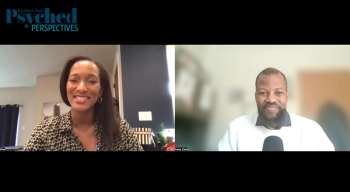
Improving Your Media Skill Set: Armed With Knowledge
Psychiatry must embrace media to combat misinformation, shared Mena Mirhom, MD, FAPA, at the 2025 APA Annual Meeting.
CONFERENCE REPORTER
"I'm really excited about the media work," said Mena Mirhom, MD, FAPA. "This is a moment for us in psychiatry."
The vast majority of individuals putting our mental health information online, whether that is on TikTok, Instagram, or elsewhere, are not credentialed experts. One analysis of 500 TikTok videos with the hashtag #mentalhealth or #mentalhealthtips found that more than 80% were misleading.1,2
"We want to be able to arm you if you want to make a video, podcast, or write something for general public consumption. We are, by nature, teachers," said Mirhom. "This is our public health education opportunity. This is our moment."
If you are interested in contributing to the
Dr Mirhom is the immediate past president of the New York County Psychiatric Society, an assistant professor of psychiatry and codirector of the PPF Express Program at Columbia University, and the chief wellbeing officer at Athletes for Hope.
References
1. Abrams Z. Addressing misinformation about mental health with patients. American Psychological Association. November 6, 2024. Accessed May 22, 2025.
2. How accurate is mental health advice on TikTok? PlushCare. Updated January 8, 2025. Accessed May 22, 2025.
Newsletter
Receive trusted psychiatric news, expert analysis, and clinical insights — subscribe today to support your practice and your patients.







